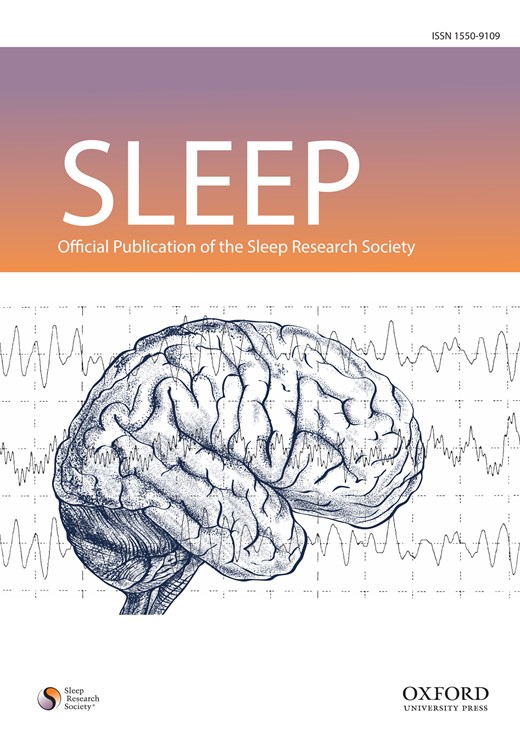-
PDF
- Split View
-
Views
-
Cite
Cite
Daniel Katzenberg, Terry Young, Laurel Finn, Ling Lin, David P. King, Joseph S. Takahashi, Emmanuel Mignot, A CLOCK Polymorphism Associated with Human Diurnal Preference, Sleep, Volume 21, Issue 6, September 1998, Pages 569–576, https://doi.org/10.1093/sleep/21.6.569
Close - Share Icon Share
Summary:
A single nucleotide polymorphism located in the 3' flanking region of the human CLOCK gene was investigated as a predictor of diurnal preference in a population-based random sample of 410 normal adults. Morningnesseveningness preferences were determined using the 19-item Horne-Ostberg questionnaire. Subjects carrying one of the two CLOCK alleles, 3111C, had a significantly lower mean Horne-Ostberg score. The distribution of scores was clearly shifted toward eveningness for these subjects. The score difference was independent of age, sex and ethnic heritage, thus making population stratification effects unlikely to explain this difference. These subjects had a substantial 10- to 44-minute delay in preferred timing for activity or sleep episodes. We suggest that the identified polymorphism or another tightly linked polymorphism within the CLOCK gene or its regulatory elements may be responsible for the finding.





Comments